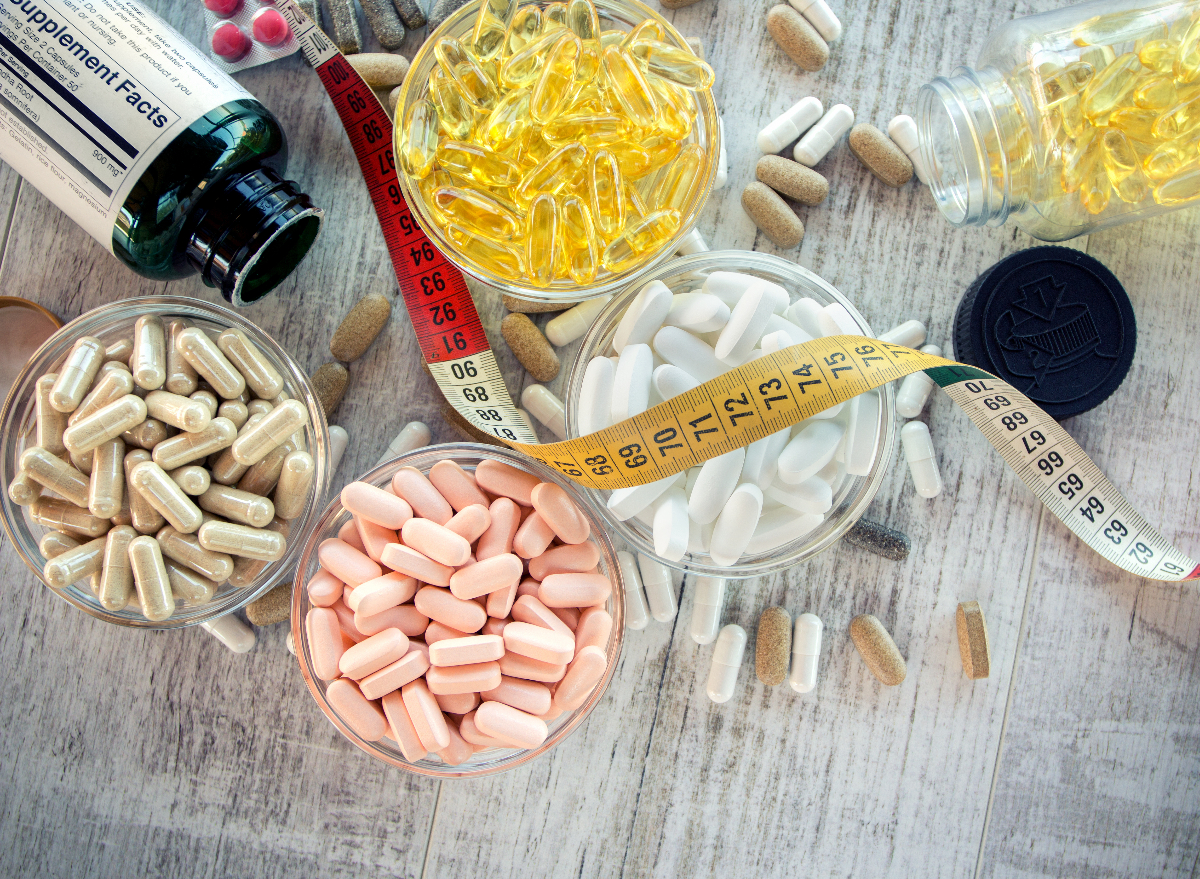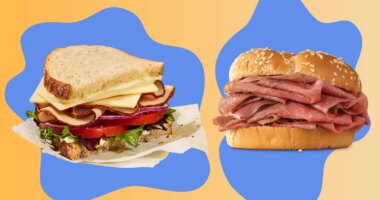Whether you’re looking to reduce inflammation, slow down signs of aging, enhance your workout, or enjoy a much better night’s sleep, the supplement world sure is wide and can feel intimidating from the outside looking in. Once you establish your needs and collect some tried and true recommendations, though, it makes the supplement selection process much easier. For instance, if improving your physical fitness and overall health is your end goal, you’ll certainly be interested in the supplements trainers actually take to give their own wellness a solid boost.
A whole lot of Americans take supplements—and for good reason. According to the 2022 Consumer Survey on Dietary Supplements conducted by The Council for Responsible Nutrition (CRN), three-quarters of Americans engage in dietary or nutritional supplement usage. Most of them take these supplements regularly. When questioned about what served as the main source of inspiration behind taking supplements, the most popular response among Americans include “live healthier/adopt healthier habits,” along with, “maintaining my health.”
Data reveals that individuals who take supplements have a greater chance of establishing healthy habits such as following a well-balanced diet, working out, going to their doctor on a regular basis, and getting sufficient rest. So if you’re looking to explore the supplement world, listen up. We spoke with a couple of fitness pros who share the supplements trainers actually take. Keep reading to learn more, and next, be sure to check out these 6 Healthy High-Protein Meals That Trainers Are Obsessed With.
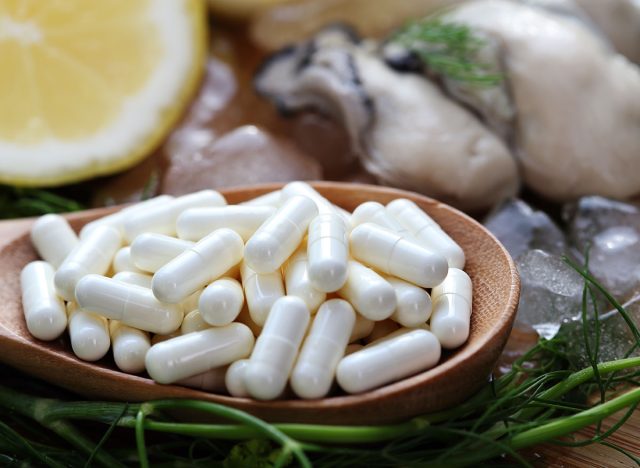

Zinc is a supplement Tim Liu, CSCS, an online fitness and nutrition coach and member of our Medical Expert Board, takes, because believe it or not, many individuals are zinc-deficient. In fact, according to March 2022 research published in Frontiers in Nutrition, zinc deficiency impacts approximately two billion individuals worldwide.
If you’re wondering what makes zinc so beneficial, Liu explains it gives your testosterone and immune system a solid boost. Incorporating a zinc supplement into your diet can help you ward off illnesses. Some research even suggests that zinc can help reduce the amount of time you deal with cold symptoms.
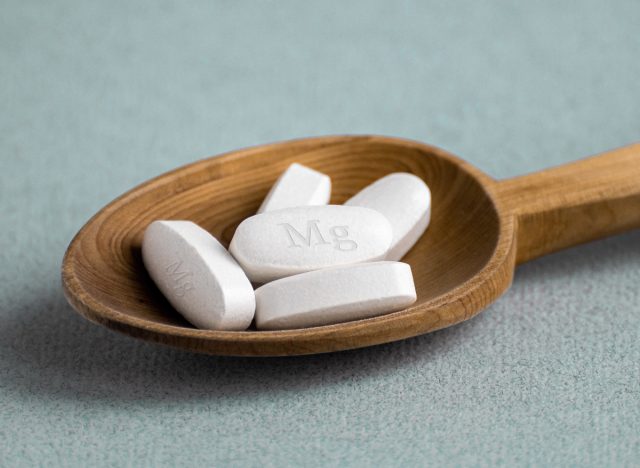

Magnesium is another supplement Liu regularly works into his diet; it’s also something many of us are deficient in. If you haven’t heard of the pros associated with this nutrient, it’s time to get familiar. Foods like beans, seeds, nuts, fish, avocados, dark leafy greens, and bananas are all stellar sources of magnesium. You can also reap the benefits of magnesium in supplement form. Magnesium promotes strong, healthy bones, a good night’s sleep, and it can help soothe pain associated with migraines.
READ RELATED: Vascular Surgery in Diabetes Management: Not Just It Prevents Limb Loss But Improves Overall Quality Of Life
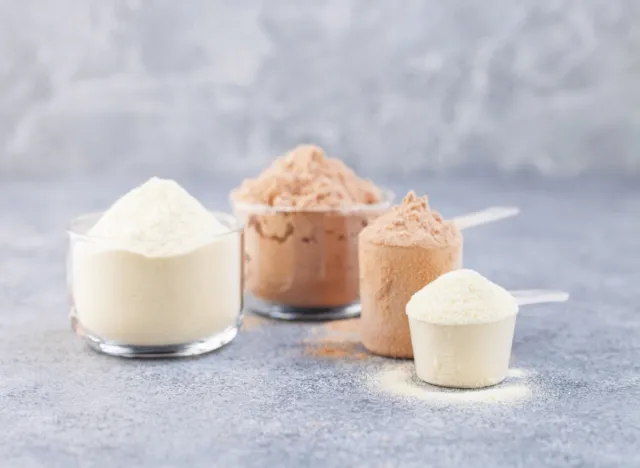

“The benefits of protein powder on muscle repair, muscle growth, and recovery are scientifically proven,” says Anthony J. Yeung, CSCS, a fitness expert and the founder of GroomBuilder. He personally recommends preparing a post-workout shake to help with the recovery process, even if you’re trying to slim down. “If you need extra protein in your diet, have a shake daily, but don’t rely on them,” he says. “Focus on getting most of your protein from real food. Nowadays, there are many varieties from whey to hemp to rice so see what feels best for you.”
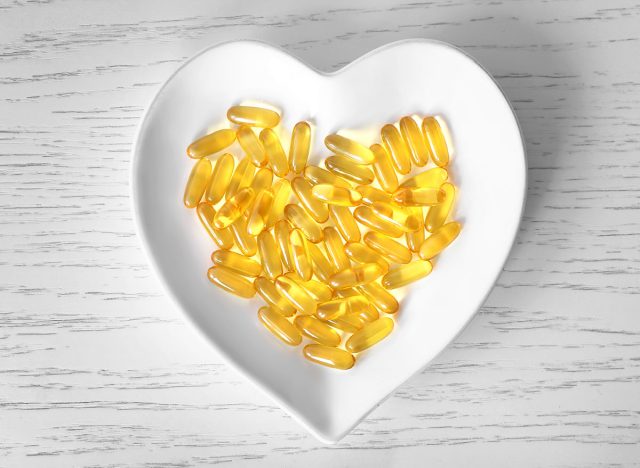

There are plenty of Omega-3 supplements on the market. But what exactly are Omega-3 fatty acids and their benefits? According to Yeung, “These have a powerful anti-inflammatory effect and have a lot of scientific support behind their benefits for fat loss, heart health, joint health, and more. Whether it’s fish, krill, flax, etc., a little goes a long way.” Omega-3s also offer hormonal and mood-boosting benefits.
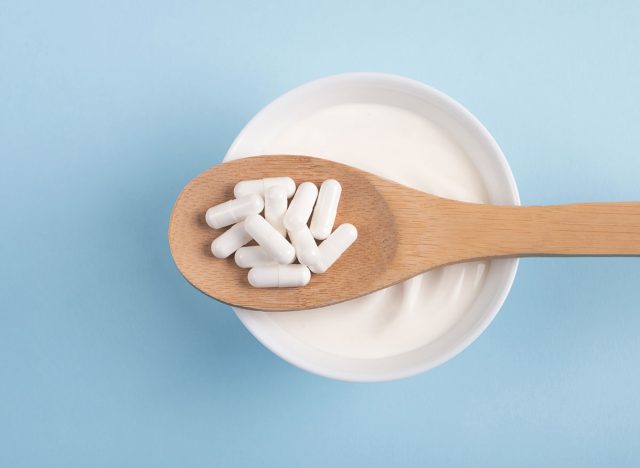

Last but not least, Yeung takes probiotics but stresses “the jury is still out” on them. You can find probiotics in yogurt, fermented foods like kimchi and kombucha, and dietary supplements. If you’ve browsed the vitamin aisle at your local health or food store, you’re likely quite familiar with probiotics. “These are healthy gut bacteria that can aid in digestion,” Yeung adds. “In certain cases, [taking probiotics] can help. If you’re curious, start with a smaller number of CFUs and see how it feels.”
Alexa Mellardo

